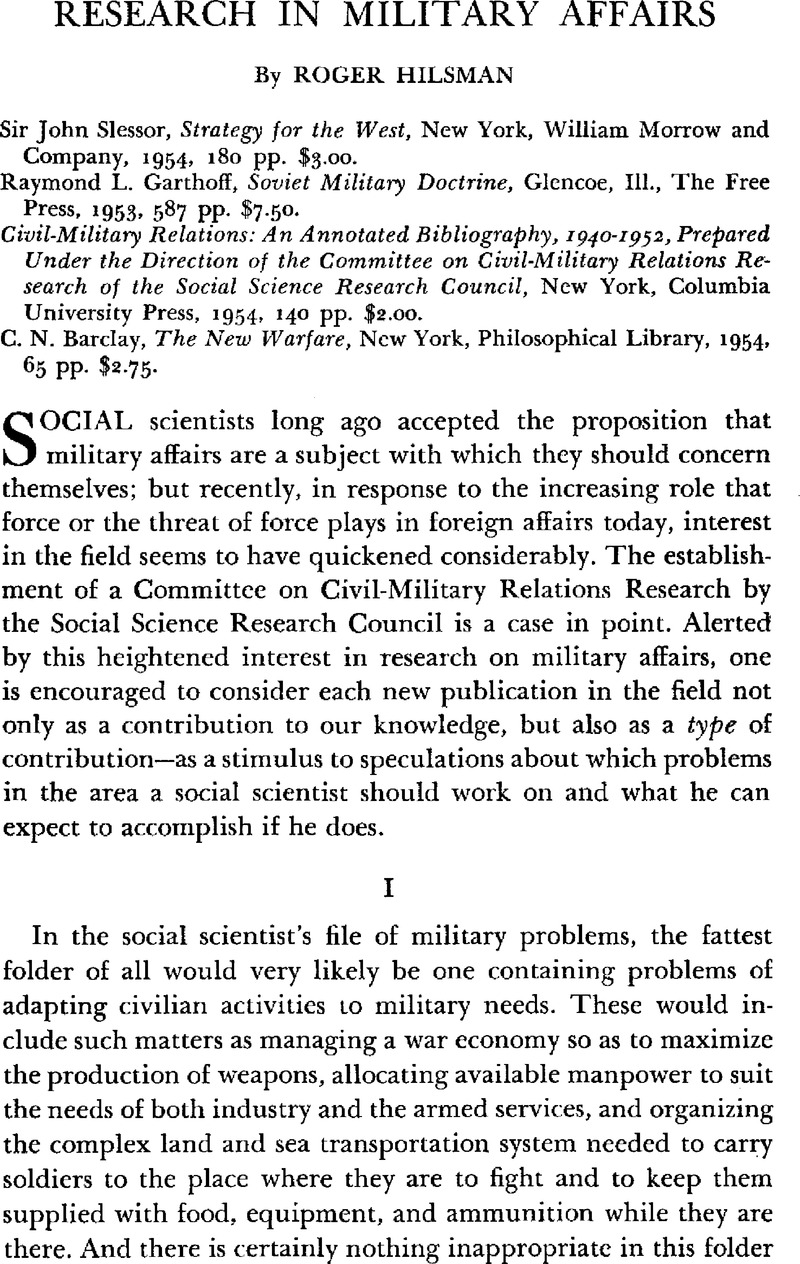No CrossRef data available.
Published online by Cambridge University Press: 18 July 2011

1 The inadequacies of the principles-of-war framework, which tries to reduce a body of theory to a number of common-sense propositions, has been pointed out by Brodie, Bernard, “Strategy as a Science,” World Politics, I, No. 4 (July 1949), p. 467.CrossRefGoogle Scholar
2 As Garthoff points out in this analysis, there were in this campaign severe departures from the doctrines. Completely ignoring their own teachings, the Soviets in 1941 strung out their forces along the border, making almost no attempt at a defense in depth and failing to take even the elementary precaution of providing a mobile reserve.
3 Wilmot, Chester, The Struggle for Europe, New York, 1952, pp. 33–55.Google Scholar
4 Marquand, John P., Melville Goodwin, U.S.A., Boston, 1951, p. 346.Google Scholar